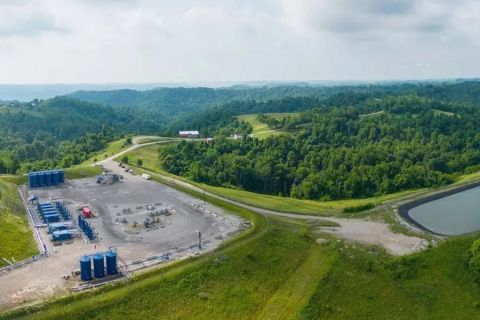
(Source: Hart Energy; Shutterstock.com)
Despite reeling from the economic challenges and disruption brought on by a global pandemic, oil and gas leaders are expected to remain committed to decarbonization goals, according to new report from Deloitte.
Environmentalists have questioned the industry’s commitment to the energy transition as the collapse in oil prices have caused many companies to slash their budgets for the year. However, the Deloitte report shows 92% of the surveyed oil and gas executives reaffirmed their companies either already have a plan to reduce reliance on fossil fuels in place or one under development.
Strategic priority
The Deloitte report, which surveyed 600 C-suite executives and other senior corporate leaders in the oil and gas industry globally, stated that most company leaders are making energy transition a strategic priority.
For instance, a group of CEOs at oil majors, including Exxon Mobil Corp., BP Plc and Saudi Aramco, earlier this week pledged to maintain a strategic focus on helping to mitigate climate change despite the impact of the coronavirus pandemic on oil and gas prices.
“Decarbonization priorities have become deeply embedded into business strategies and created a momentum for action that will not easily be compromised by present circumstances,” Stanley Porter, vice chairman of Deloitte and U.S. energy, resources and industrials leader, and co-author of the report, said in a press release.
More than half of surveyed CEOs indicated that the key component of their decarbonization strategy was a focus on low-carbon fuels, including natural gas, citing consumer support and regulatory mandates including policy incentives, as the top drivers for the energy transition.
In addition, oil and gas executives reported developing low-carbon products such as “green” gas and replacing hydrocarbons with cleaner fuels or renewables in operational processes.
A large number of executives reported that meeting decarbonization reduction targets are tied to board and/or executive compensation. Though, 60% of surveyed CEOs agreed that the key benefit achieved from their plans for a lower-carbon future was to improve the environment, Kate Hardin, executive director for the Deloitte Research Center for Energy and Industrials and co-author of the report, told Hart Energy.
While environmental benefits will likely be deemphasized as companies regain their footing through the economic crisis, reducing costs and maintaining a competitive position are expected to remain important even in the downturn, the report stated.
Technology crucial
Survey respondents overwhelmingly cited technology as a key enabler of progress in the energy transition.
“While a near-term pause in spending on new technologies is expected, they are unlikely to be canceled completely as these investments help increase operational efficiency, reduce carbon emissions, and benefit companies in the long run,” the Deloitte report stated.
Digital technologies that improve energy efficiency were ranked as the top priority with carbon-capture, utilization and storage and other carbon-reducing technologies identified as a key component to emission reduction by oil and gas leaders.
As the Deloitte report pointed out, another enabler of the energy transition, which has been important in the current downturn, is increased collaboration with parties outside a company’s core business.
Survey respondents highlighted collaboration with niche technology firms and academia, as well as developing partnerships and joint ventures, as important efforts in their low-carbon strategies. Moreover, as companies move to asset-light portfolios and diversify their activities, mergers and acquisitions are also expected to be important.
Recommended Reading
E&P Highlights: Feb. 12, 2024
2024-02-12 - Here’s a roundup of the latest E&P headlines, including more hydrocarbons found offshore Namibia near the Venus discovery and a host of new contract awards.
TotalEnergies Expanding Orange Basin Presence
2024-03-06 - The new acreage offshore South Africa is on trend with the Venus discovery offshore Namibia.
EIA: E&P Dealmaking Activity Soars to $234 Billion in ‘23
2024-03-19 - Oil and gas E&Ps spent a collective $234 billion on corporate M&A and asset acquisitions in 2023, the most in more than a decade, the U.S. Energy Information Administration reported.
EQT, Equinor Agree to Massive Appalachia Acreage Swap
2024-04-15 - Equinor will part with its operated assets in the Marcellus and Utica Shale and pay $500 million to EQT in exchange for 40% of EQT’s non-operated assets in the Northern Marcellus Shale.
Stonepeak, Dominion Energy to Partner on Virginia Offshore Wind Project
2024-02-22 - Stonepeak will acquire a 50% interest in Dominion Energy’s offshore wind project, which is expected to be the largest offshore wind farm in the U.S.





